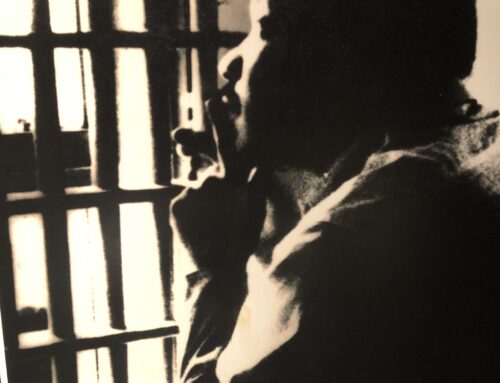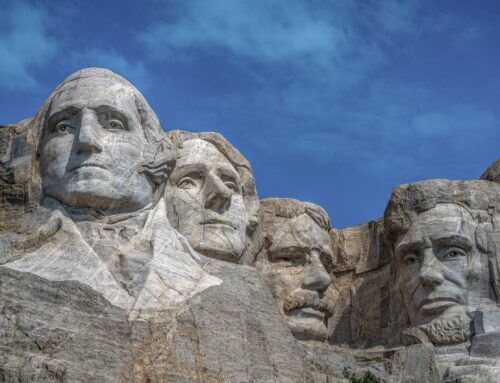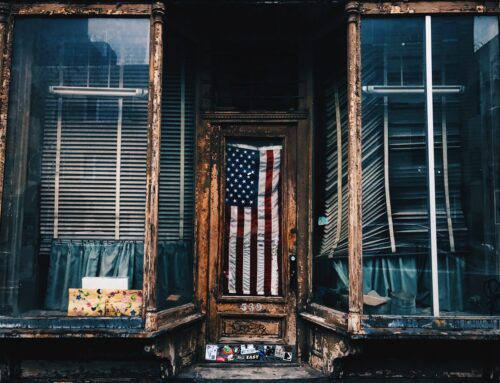
Ahmaud Arbery’s family and friends are grieving. The McMichaels, Gregory (64) and Travis (34), who are facing charges in connection with Mr. Arbery’s death are in jail without bond. The community of Brunswick, Georgia must be teaming with all kinds of grief, anger, and tumult. Our nation is again grieving that this kind of thing happens and that it can go unnoticed for so long.
That it went unnoticed, that no charges were filed for so many weeks, reminds me again of what a strange thing racism is. As a pastor who often wades into the hidden or unseen issues of the heart, I’ve noticed that racism is in a category all its own.
It’s strange that racism isn’t seen as a problem until it is.
When a white man abuses or takes the life of a black man because the black man is black, we pay attention. White people, who live in a predominately white community, shake our heads and are genuinely taken back by the injustice.
But for people of color, this isn’t new news. For people of color in a predominately white community, the impact and threats of racism are a way of life.
As a darker skinned friend of mine said to me once, “We can’t walk in each others shoes. I can’t know what it’s like to be white, and you can’t know what it’s like to be black. But we can care about each other.”
Maybe that’s what Holy Spirit was commanding us to do as he led Paul to write,
Do nothing out of selfish ambition or conceit, but in humility consider others as more important than yourselves. 4 Everyone should look not to his own interests, but rather to the interests of others.” Philippians 2:3-4
So if racism is a problem for my neighbor, especially if just for a few of them, it should be a problem for me.
It’s strange that racism gets nuanced more than other sins.
I have the privilege of being around people who revere the Bible. Most of them would consider themselves theological conservatives. As it relates to theology, to be a conservative is to seek to conserve the faith once and for all delivered to the saints.
The basis of conservatism is the belief that all Scripture is inspired by God, or more accurately stated, God-breathed. Every word of the Bible, in its original autographs, are exactly as God intended, and are therefore, sufficient for a daily life and worthy of our study.
So when I talk about the ugliness of jealousy, anger, or lust, for example, there is a unified, widespread disdain for these sins. When I preach against greed, no one wonders, “Is he coveting my new car?” or “Is he unhappy with his salary package?”
But when I mention the evils of racism, something changes. It’s palpable—as if someone turned the thermostat down to low and the fan up to high.
Suspicions go up and people will actually ask, “Are you suggesting blacks should not be held responsible for crimes they commit?” “I’ve never owned slaves. No one owns slaves anymore. Why are we still talking about this? “Have you been reading up on Critical Race Theory?” “Are you a liberal?”
Instead of conserving the faith, the realities of racism tempt people who think of themselves as biblical conservatives to do what theological liberals actually do, which is to segregate portions of the Bible into a category called “non-authoritative.”
So I may quote passages like Peter’s new understanding and announcement that God does not show favoritism between people groups:
Now I truly understand that God doesn’t show favoritism, 35 but in every nation the person who fears him and does what is right is acceptable to him. 36 He sent the message to the Israelites, proclaiming the good news of peace through Jesus Christ — he is Lord of all. Acts 10:34-36
Or I may refer to Paul’s declaration that the dividing wall between Jews and Gentiles has been removed, or that people from every tribe and tongue will be around Jesus’ throne in heaven; or even better, that Jesus gave us the Great Commandment, which commands (emphasis mine) us to love God and love our neighbors. When I mention these passages, particularly in light of the belief that we are all created by God and bear his image, it’s not uncommon to get a “Yeah, but…” response.
When Bible-believing people “yeah, but” the sin of racism, we can no longer claim the Bible as our authority for life and conduct. We may not be as conservative as we would like to think.
It’s strange that racism doesn’t get our action until it conforms to our political allegiances.
It’s sobering, but I have no trouble imagining the tragedy that took place in Brunswick, Georgia happening in my own predominantly white, formerly Bible-Belt community. It’s not that we don’t live in a wonderful place surrounded by amazing neighbors. We do.
But many conversations I have on racism are shaped more by political pundits than by Bible teachers who teach the Bible. If you listen close enough and for long enough, you can hear it. It sounds reasonable, even righteous. The arguments are clear and fit neatly within a political framework, whether on the right or left. What comes to the surface, however, is a limited view of God, creation, sin, redemption, and Jesus’ kingdom reign.
This theological sloth leads to practical inaction in the public square.
For example, any theological framework that compels us to advocate for the unborn, close down abortion clinics, and volunteer at the pregnancy center, yet allows us to remain apathetic to the evil of racism demonstrates a misguided view of God and his redeeming work. If our theology calls us to take the Gospel to the nations of the world through an energetic and expensive missionary enterprise, yet leaves us unmoved when dark-skinned immigrant children remain marginalized in our own communities, we can only assume political protectionism is a greater influence than historical, biblical Christianity.
It’s strange that Bible-believing people, whatever our political disposition may be, people who have surrendered our lives to Jesus as Lord, would choose to be discipled more by a political ideology than a historically Christian theology. Or maybe it’s not that strange at all.
I wonder, as a fallen fellow pilgrim on this journey, if the idols of our heart are more significant than we think. Could it be that the sin of racism, our favoritism (whether active or passive) of one group of people over another, woven into the fabric of a southern Christian culture is the great sin of our generation? Is it possible that the most important culture war to fight and win is inside the hearts of the redeemed people of God?





